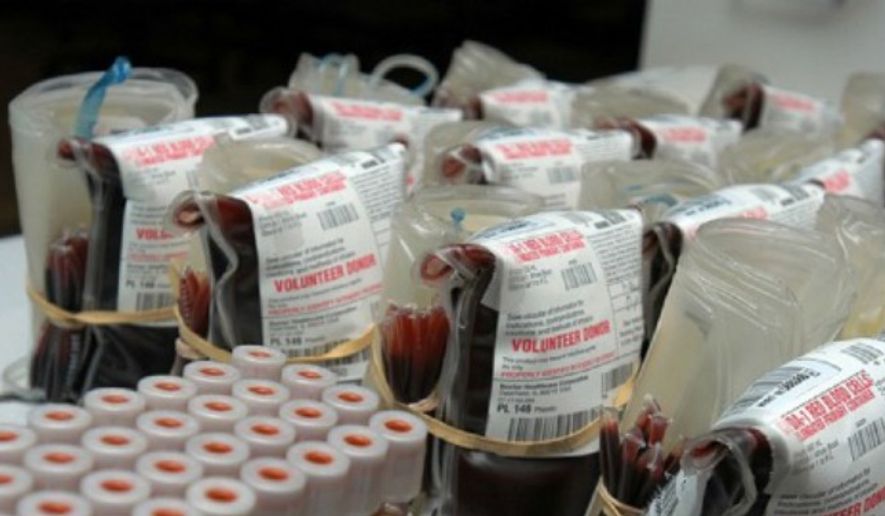A federal plan to permit gay and bisexual men to donate blood — after a year of sexual abstinence — is panned by many groups, but was endorsed Tuesday by news editors at one media company.
The proposed one-year blood-donor deferral policy for gay and bisexual should be accepted by the Food and Drug Administration “as a first step toward further relaxing the restriction,” editors of Bloomberg News said Tuesday.
“It’s not clear how much this change would increase the number of blood donors. But that’s not the only goal,” the editors wrote. “More important is to institute a policy that reflects science and avoids needless discrimination, without compromising blood recipients’ safety.”
If a one-year deferral doesn’t result in more HIV-positive blood units, the Bloomberg editors added, the FDA should consider “shortening the deferral period” — and even lift the ban completely for men “who are in monogamous, long-term relationships.”
Current blood-donor policy for men who have sex with men (MSM) is permanent deferral if they have had sex with a man since 1977. This policy was created to block transfusion of HIV/AIDS from a population that was — and remains — a high-risk group for HIV infections.
The MSM policy has been deemed “suboptimal,” especially since blood testing is greatly advanced and can find most infections after a 10-day window.
On Nov. 13, a federal advisory committee for Health and Human Services voted 16-2 to recommend that MSM be permitted to donate 12 months after their last sexual encounter with a man. This is comparable to the deferral policies for other high-risk donor groups, and is similar to policies in other countries, such as Australia and Sweden.
The MSM blood donor issue will be taken up again in a federal meeting the first week of December.
Blood recipient groups, such as plasma users and hemophiliacs, are closely monitoring the process, since recipients carry “all of the risk” of transfusion infections. Any change to a donor policy should be based on proof it won’t add risks of infection to the blood safety, they say.
Gay rights groups, however, say that the blood supply is safe and the proposed one-year deferral still uniquely stigmatizes gay men’s relationships.
“Mandating one year of abstinence prior to donating blood is not only unrealistic, but perpetuates stereotypes around men who have sex with men, HIV/AIDS, and high-risk sexual behavior,” K.C. Coredini, executive director of MassEquality, recently told Boston.com.
Eligibility standards on blood donations “should be completely equitable and based on scientific and medical facts,” she said.
A one-year deferral is “nominally better” than existing policy, but still prevents gay and bisexual men from donating life-saving blood “based solely on their sexual orientation,” said David Stacy, government affairs director at the Human Rights Campaign.
The proposed deferral would still prevent two men who maintain a committed, monogamous relationship from ever donating blood, said Ian Thompson, legislative representative for the American Civil Liberties Union. That’s because it “does not distinguish between high risk and safer sex practices.”
• Cheryl Wetzstein can be reached at cwetzstein@washingtontimes.com.




Please read our comment policy before commenting.